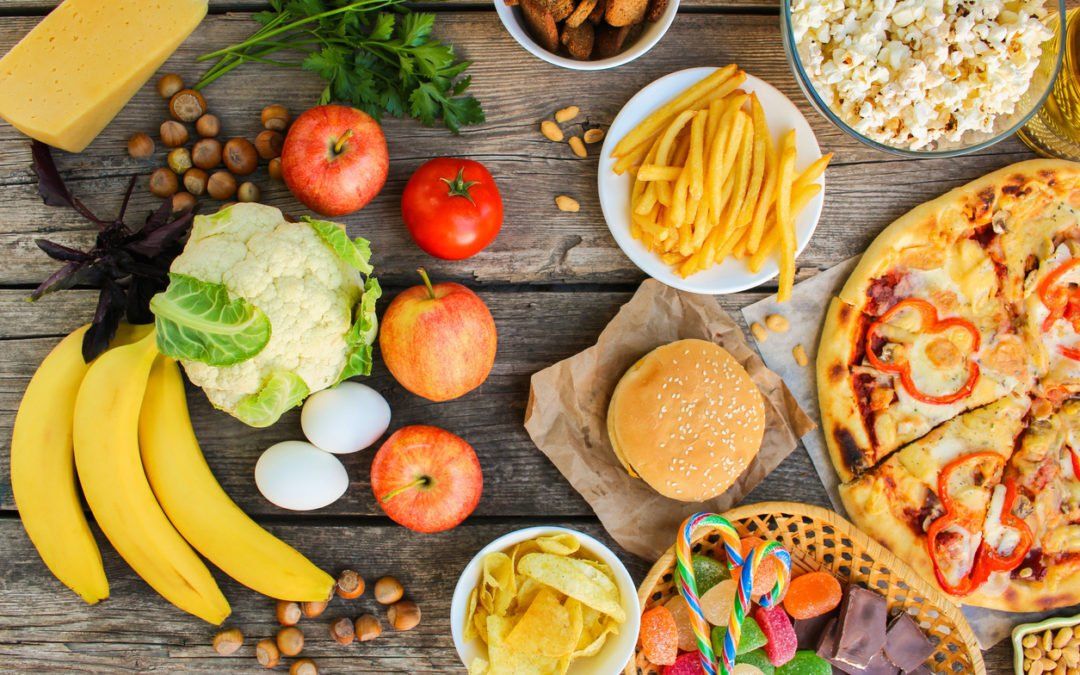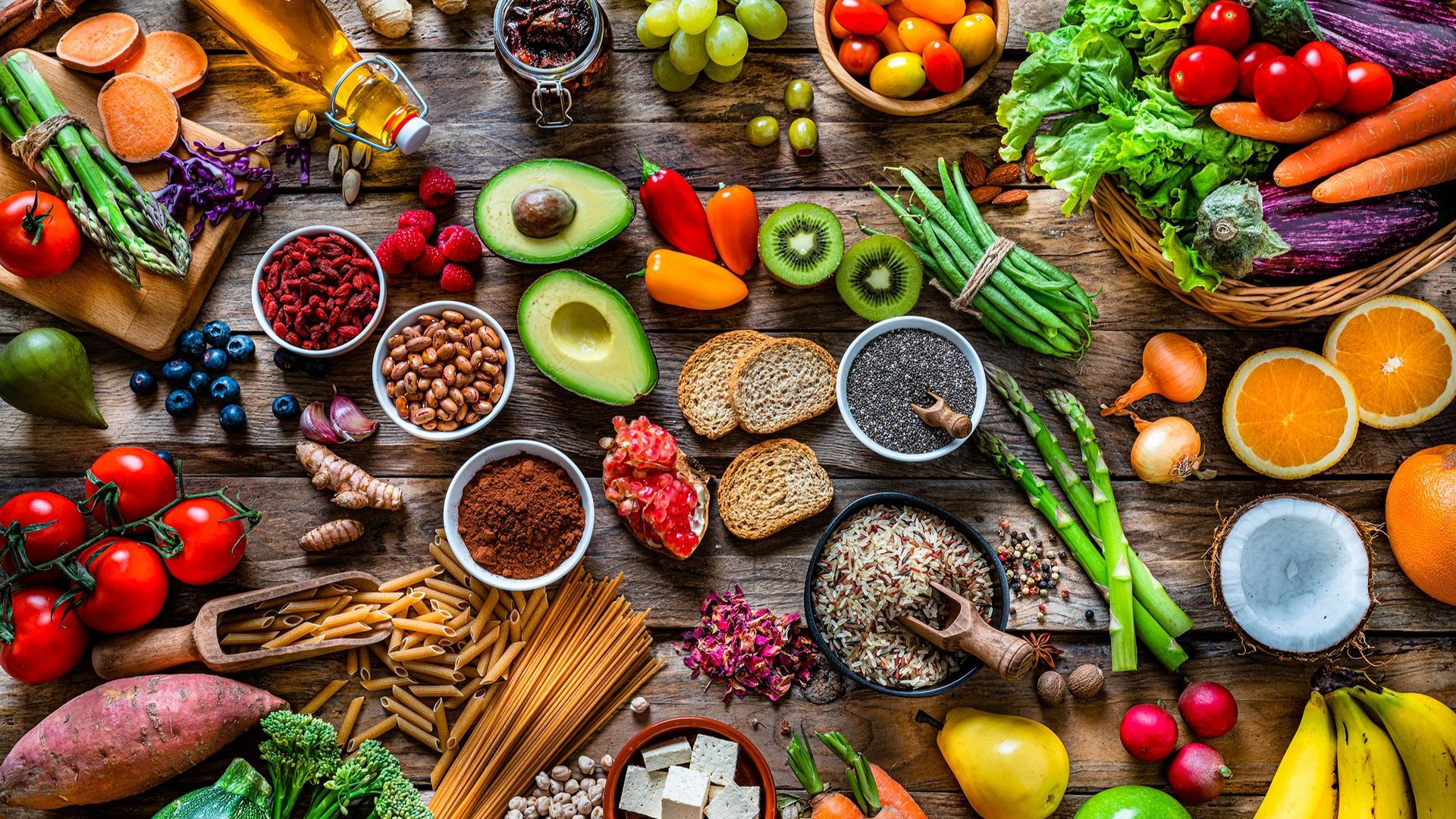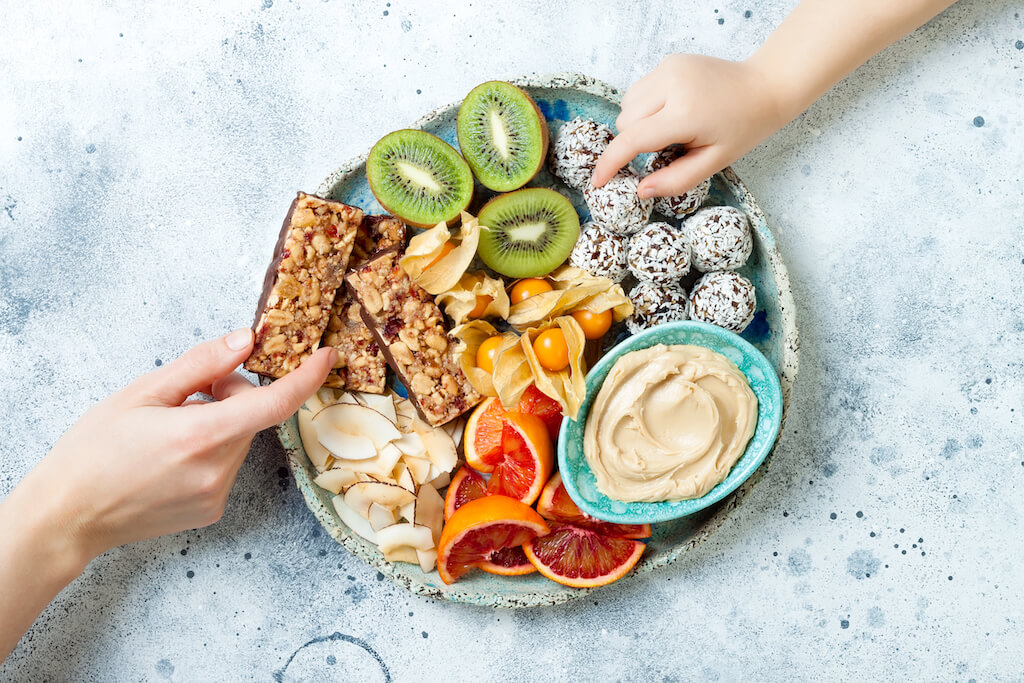Stop Believing These 5 Food Myths

With new literature, studies, news articles, and social media posts rolling out every day, it can be hard to know what to believe and what to reject when it comes to the fuel we put into our bodies. Today eggs are bad, tomorrow they are good. The word organic MUST mean something is automatically healthy. The misconceptions are everywhere! Read on to discover five food myths debunked by actual medical sources and scientific studies and decide for yourself which direction you will go to live a happy, healthy life.
Common Food Myths
1) Organic = Healthy
There has been a massive push towards health with the word “organic” leading the way on labels across the country. “Health food” sections in grocery stores are expanding and some stores are even producing their own store brand versions of your favorite selections. What we need to realize is being “organic” does not automatically mean something is healthy. The USDA defines organic food as being food produced without the use of conventional pesticides, synthetic fertilizers, or sewage sludge. The farms where foods and ingredients are produced as well as the factories where they are processed must be government certified to bear the “organic” label. Sounds great, right? However, there are all kinds of organic candy, chips, and sugar-laden treats which should not be mistaken as healthy by any means. You would not diet on regular chips and soda, and organic chips and soda are no different save they were produced by organic standards.
2) Chocolate Causes Acne
Many parents and adolescents alike may have heard the myth that chocolate causes or worsens acne. Thankfully, this is not true. A University of Pennsylvania study has shown no difference in the prevalence of acne in a control group who consumed fake chocolate versus a group who consumed chocolate. Eating the occasional chocolate treat will not make your acne any worse, likewise, cutting out chocolate from your diet completely will not help resolve it. In fact, dark chocolate is now considered to be very good for you. Quality dark chocolate can lower the risk of heart disease, improve blood flow, and is packed full of beneficial antioxidants. It is also rich in minerals such as iron, magnesium, and copper. It also stimulants the brain, similar to caffeine.
3) Egg Yolks are Bad for You
By now it is common knowledge that eggs are a source of protein and fat, particularly the cholesterol in the yolk. With high cholesterol scares saying we need to consume fewer fats to avoid heart disease and obesity, it is no wonder our protein-packed breakfast food has been taking some hits. The types of fats or cholesterol in egg yolks have not been linked to heart disease in otherwise healthy people, but rather, the trans and saturated fats in the foods which accompany eggs such as breakfast sausage may be the culprit. Egg yolks are loaded with vitamins, omega-3s, and antioxidants, which are all things you miss out on when you stick to whites only. Most people can eat a whole egg every day without any change in their risk for heart disease, also lowering their risk for certain types of stroke. So, break out the whisk, because scrambled eggs are back on the menu!
4) Margarine is Healthier than Butter
For many, margarine is an acquired taste when it comes to real butter. Back when people were cooking everything in butter, it came to light that the saturated fats it contained were causing heart disease thus instigating people to switch to margarine. However, soon after, it was shown the trans fats in margarine were even more heavily linked to heart disease. Not only did it raise bad cholesterol, but it also decreased the good cholesterol. Overall, it is always best to use your fats sparingly. We do need “healthy saturated fats” in our diet to be healthy, and a serving of butter is a good way to deliver this. Just make sure you check labels to see what a recommended serving is.
5) Coffee is Bad for You
Coffee oftentimes gets a bad reputation, but it can actually be healthy for you. Because the caffeine in coffee is a stimulant, it can enable your brain to produce more dopamine and adrenaline than usual. This can improve both your memory and reaction times. The stimulant properties also help you burn more fat when you exercise. Harvard research has shown those who consume caffeine regularly can have longer lives than those who do not. Coffee can also decrease your chances of having a stroke if consumed in quantities of 2-6 cups per day.
It’s Time to Hit the Supermarket With Confidence
Now that you can make informed decisions regarding the food you put in your body and serve up to your family, you can hit the supermarket with confidence. Making sure your “organic” choices are not just sugary treats in disguise and choosing butter over margarine are two ways you can ensure a healthier you. Serve up that egg yolk with pride in your knowledge or treat yourself to that chocolate bar with these five common food myths debunked.
Stay Healthy My Friends!
Dixon Troyer is the President of Operations at 3 Elements Lifestyle, LLC., a Fitness and Weight Loss company that specializes in YOU! With more than 15 years of gym and club experience, owning, operating and managing clubs of all sizes, Dixon lectures, delivers seminars and workshops on the practical skills required to successfully help you with your health and fitness goals. Dixon also helps you build the teamwork, management, and training necessary to open your own fitness center.
Visit his website at www.3elementslifestyle.com or email at dixon@3elementslifestyle.com or call (805) 499-3030.






